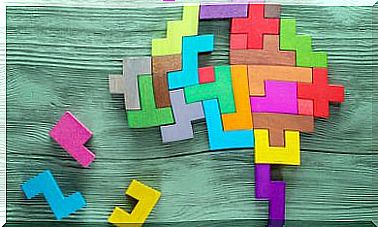I Am Not Lying, I Deceive Myself

From the creators of “on Monday I do start the diet”, “calmly I can drink more than I control”, “this year I’m sure I’m going to the gym” or “we go out, but we’ll come back soon that tomorrow I get up early”, comes the definition of the word self-deception.
Because self-deception is what you really believe, you are convinced that you are going to do, but in the end you know or at least suspect that you will not do, although you are usually convinced that this time it will be different when you tell these little lies.
Self-deception, in short, is a term used for those lies that we often unintentionally tell ourselves and we hope that the consequences or discomfort that these situations produce in us will be less.
And yes, they are unintentional because many times we are not fully aware that what we say we are not going to fulfill. Therefore, self-deception is not ordinary lies, since we have a clear intention of deceiving someone to get something in return.
Self-delusions, on the other hand, are often excuses that we make to avoid hurting ourselves. That is why it is more correct to say: I do not lie to myself, I deceive myself, since for many people self-deception is a way of life that reduces the suffering of the reality in which they are immersed.
The brain mechanism of self-deception
According to Robert Trives, self-deception is an adaptation designed to incorporate our lies and make them unconscious or inconspicuous in order to appear reliable, since all deception is intended for self-promotion.

In addition, cognitively and according to research conducted by Trives, consciously lying is inherently exhausting for the brain because it creates a contradiction in it, which can reduce our ability to perform cognitive tasks.
This explains why our performance is worse after having lied, even if the cognitive task that we are performing has nothing to do with the lie that we have told. Therefore, if we use self-deception, by using our unconscious to mitigate the contradiction by reducing the cognitive load, performance is better, at least in the short term.
For Trives this means that self-deception is evolutionarily useful and has been developed so that deception of others is more effective and is momentarily less costly cognitively speaking.
Self-deception and addictions
The most important function of self-deception is to make us more credible to others, more attractive, because if we lie more effectively through self-deception, the more easily we will deceive others through its use.
Therefore, using self-deception does not imply having a mental illness. What’s more, all the readers of this article, like its author, have been self-deceived and we will continue to do so. If you think not, remember the phrases with which we began this article to understand that self-deception is the most common and natural.

But sometimes self-deception used as a long-term reality warp can indicate real mental health problems. Problems reflected, for example, in addictive behaviors, because the lie stops passing the conscious filter, considering the consumption of any substance as something controllable for that subject when it is no longer so.
That is, as Goebbels said “a lie repeated a thousand times becomes a truth.” This in an addict is reflected in his deformation of reality, both in the relapse processes and in the justification for continuing to consume the substance despite being harmful, which is manifested mainly in two reasons caused by self-deception:
- The fault of my relapse is you: I feel bad for having argued with you, so that you are responsible and I consume what I need to support you.
- I do not have a problem with drugs, because control belongs to me: whenever I want I can quit, I am not an addict.
This turns what was originally an adaptive mechanism into a damaging weapon against ourselves. In addition, it is something that by extension and thanks in part to our great communicative power, also affects others and the trust they will place in us in the future.
Therefore, evaluating this mechanism and taking it into account in all therapeutic processes, especially those related to addictive behaviors, is of the utmost importance when it comes to achieving a therapeutic change. Especially if we want this change to be lasting and not just be a passing self-deception.









